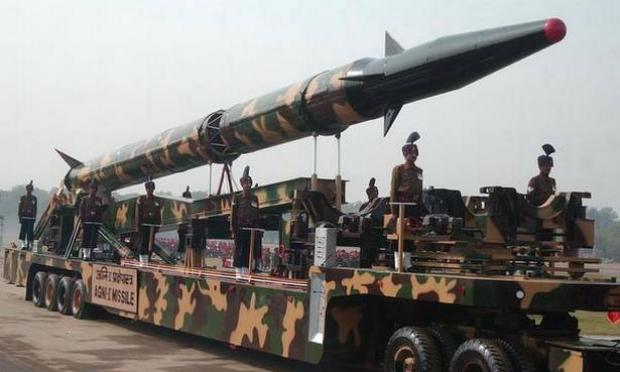Driven by national security concerns and the emergence of China as a significant threat, India is looking to expand its military capabilities in space, according to analysts.
“Geopolitics is the primary driver for India to focus on the military aspects of its space program,” said Rajeswari Pillai Rajagopalan, director of the Center for Security, Strategy and Technology at the Observer Research Institute in New Delhi.
“It has to respond to the growing capabilities in space of China, with which time and again border disputes have flared. India has recognized that if it does not step up, it will lose out on using space assets for military purposes,” he told VOA.
An Indian anti-satellite weapon test conducted two years ago to demonstrate that it could shoot down satellites in space was the country’s first significant step to give a military profile to its space program. With that test, India became the fourth country, after China, Russia, and the United States, to demonstrate anti-satellite capability.
India’s anti-satellite test came 12 years after China conducted one in 2007. While for years India’s space program focused on civilian space applications and space exploration, China’s demonstration of its capacity to bring down satellites became a “wake-up” call for the country about the kind of space security threats that it will need to address, say analysts.
“It was essentially a deterrence mechanism, a message to the adversary that we have developed counter space capabilities,” said Ajay Lele, senior fellow at the Manohar Parrikar Institute of Defense Studies and Analyses in New Delhi. “India is in a peculiar situation. Two adversaries on its border are nuclear weapon states. And as one of them, China, has developed significant counter space capabilities, so India too wants to be prepared in the event there is weaponization of space in future.”
In 2019, India established the Space Defense Agency to develop the country’s space strategy. According to domestic media reports, India is developing sensors and satellites along with ground stations to aid defense forces with space assets.
“This is being done because 24 by seven if you have to monitor an area to analyze developments more closely, you need many more satellites,” according to Lele.
The current key focus, analysts said, is on enhancing surveillance capabilities of sensitive areas from space assets from a military perspective.
India’s concerns center both on its Himalayan borders with China, where disputed borders between the two have sparked military tensions, and on the Indian Ocean region, where China has been increasing its influence.
This photograph provided by the Indian Army, shows Chinese troops dismantling their bunkers at Pangong Tso region, in Ladakh along the India-China border, Feb.15, 2021.
FILE - This photograph provided by the Indian Army, shows Chinese troops dismantling their bunkers in the Pangong Tso region, in Ladakh along the India-China border, Feb.15, 2021.
Last year, New Delhi and Beijing were involved in a months-long military standoff sparked by Indian accusations that Chinese troops had encroached into its territory in a remote mountain area of Ladakh in the western Himalayas during the winter, when the ice-covered area is largely inaccessible. New Delhi analysts had questioned why India could not detect the alleged Chinese incursions earlier through satellite imagery.
It is only in recent years that India got communication and reconnaissance satellites dedicated to the armed forces – the first one went to the navy which has to guard a long coastline.
“Demand is only growing,” Pillai said, “But India’s space agency’s ability to keep up with this demand is an issue.”
There are demands to enhance space assets for the military, particularly as China develops more sophisticated counter space technologies such as cyber warfare.
“India has a very basic satellite program. Also, in terms of numbers, it has very few satellites compared to countries like China and the United States,” according to Manoj Joshi, a distinguished fellow at the Observer Research Foundation.
“So in an environment where satellites can be disabled or neutralized, the military would want to have the ability to rapidly replace them,” he said.
However, India’s defense-related space capabilities are still nascent because of budget limitations.
“India is constrained for resources. Its defense budget has been declining compared to gross domestic product in recent years,” Joshi said.
“So India is a tiny player compared to countries like China, the United States and Russia,” he said.
The hit to the economy from the COVID-19 pandemic is expected to make it harder to allocate more resources.

Κόσμος
Ενημερώθηκε στις:
India looks to enhance military capabilities in space

Ακολουθήστε το Πενταπόσταγμα στο Google news













